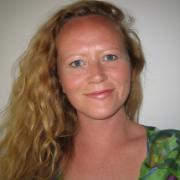Details
March 5, 2020
3:00 pm - 5:00 pm
Jackman Humanities Building, Rm 317
170 St George St
University of Toronto/McMaster University
YEHAN NUMATA BUDDHIST STUDIES PROGRAM 2019-20
TRINE BROX (University of Copenhagen)
READING GROUP: “Theorizing the Wear and Waste of a Buddhist, Efficacious Object”
THURSDAY, March 5, 2020, 3-5pm, University of Toronto, JHB 317
This article investigates the wear and waste of sacred, Buddhist material objects, arguing that consumption is not only the usage, wither- ing, and destruction of something but also a productive process. Moreover, the end of consumption is not always waste, and the sacred does not necessarily expire with consumption. Based upon ethnographies of waste in India, Nepal, and China, the article takes the Tibetan prayer wheel as an example. The prayer wheel ranks highly in a Buddhist object hierarchy as a container of sacred script, and prayer wheel practice promises karmic fruits like merit, good fortune, and blessings, but what happens to its integrity when it breaks down? And more generally, I ask: How is the sacred status of Buddhist material objects affected by consumption? What is after consumption? To an- swer these questions, I propose that we investigate the prayer wheel as an afterlife object understood through the status and wear of the original object. This means looking into how Buddhists ascribe different meanings and status to prayer wheels, and how that also affects their diverse post-consumption destinies either as worthless garbage or as sacred, apotropaic, and auspicious objects.
LECTURE: The Afterlives of Buddhist Material Objects
FRIDAY, March 6, 2020, 4-6pm, McMaster, University Hall 122
 Trine Brox is Associate Professor in Modern Tibetan Studies and Director of Center for Contemporary Buddhist Studies at the Department of Cross-Cultural and Regional Studies, University of Copenhagen, Denmark. She has written about contemporaneous issues in Tibet and the Tibetan exile: Topics span from secularism, translations of democracy and conceptual history, over expedition and research history, to Buddhism and economy. Her monograph Tibetan Democracy: Governance, Leadership and Conflict in Exile was published in 2016, she has co-edited the book On the Fringes of the Harmonious Society: Tibetans and Uyghurs in Socialist China (2014).
Trine Brox is Associate Professor in Modern Tibetan Studies and Director of Center for Contemporary Buddhist Studies at the Department of Cross-Cultural and Regional Studies, University of Copenhagen, Denmark. She has written about contemporaneous issues in Tibet and the Tibetan exile: Topics span from secularism, translations of democracy and conceptual history, over expedition and research history, to Buddhism and economy. Her monograph Tibetan Democracy: Governance, Leadership and Conflict in Exile was published in 2016, she has co-edited the book On the Fringes of the Harmonious Society: Tibetans and Uyghurs in Socialist China (2014).

